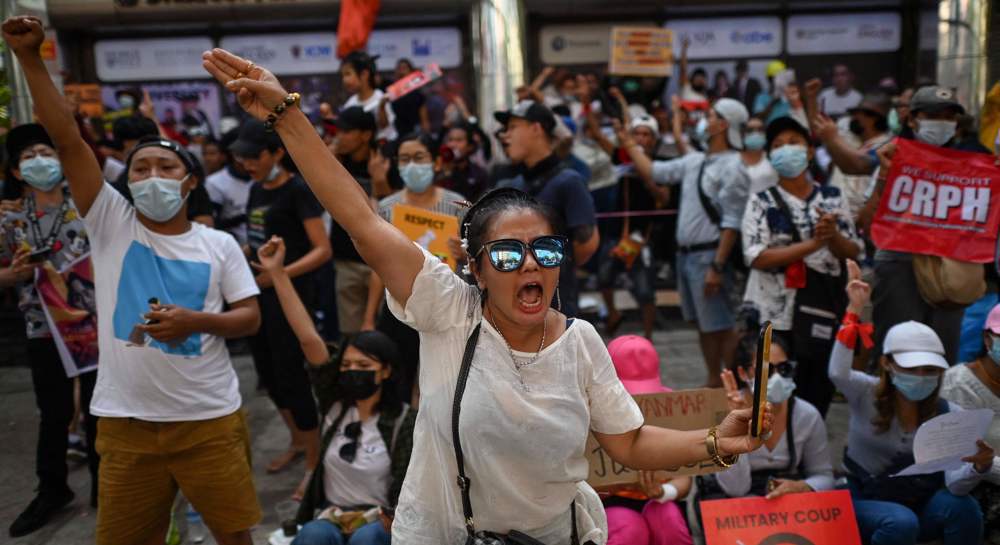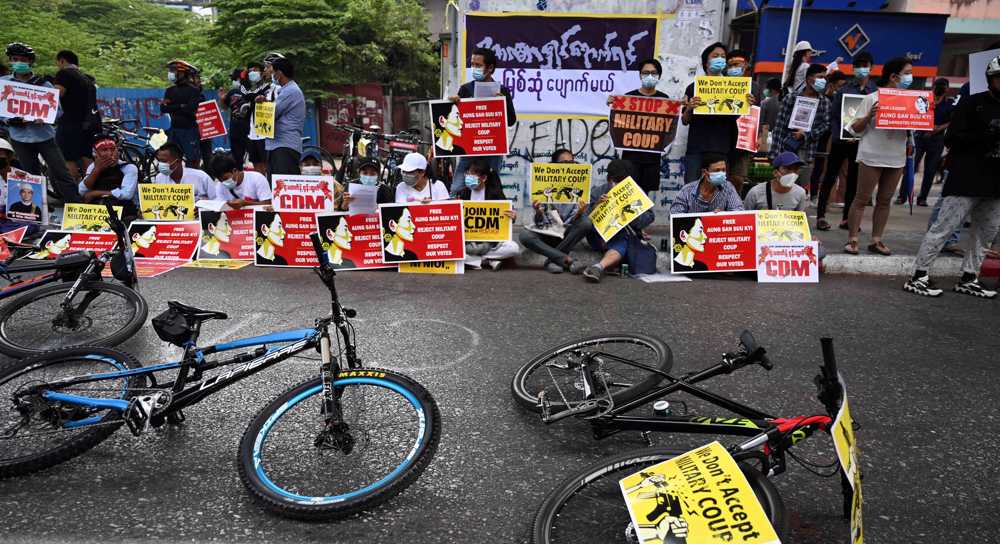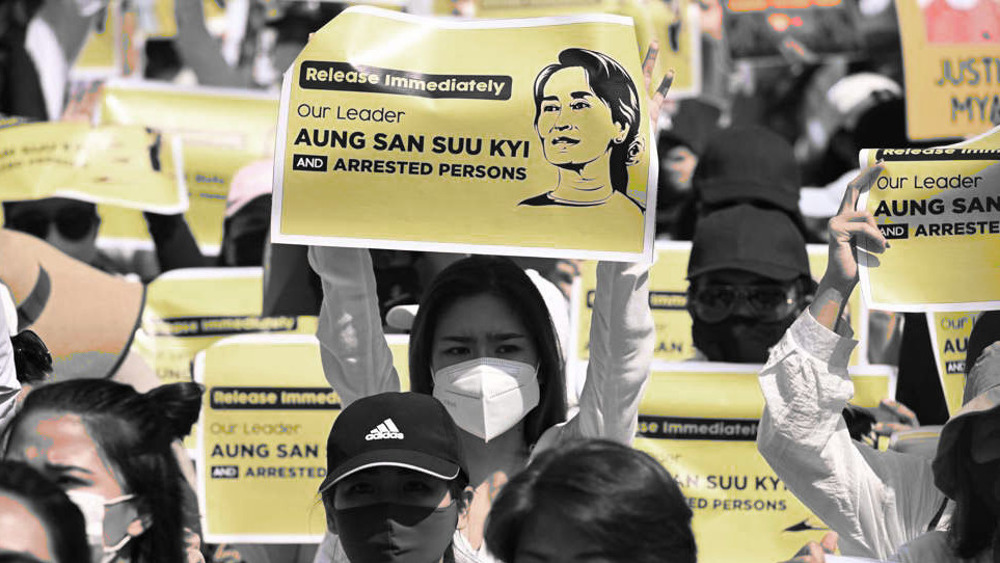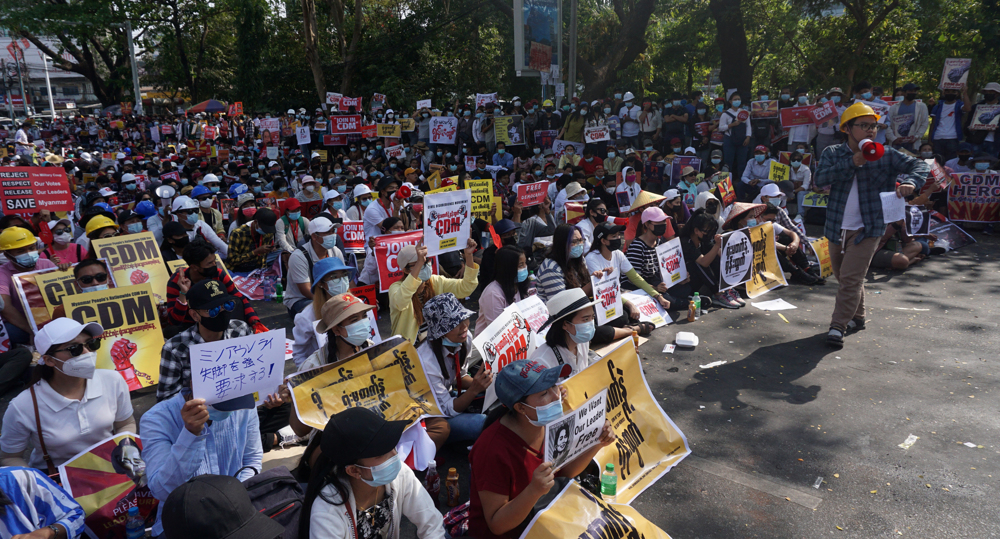More protests held in Myanmar amid diplomacy to resolve crisis
More protests have been held in Myanmar against the recent coup in the country, amid diplomatic efforts to resolve a deepening crisis triggered by the putsch.
People took to the streets in cities across the country once more on Wednesday, protesting against the coup and the army generals who ousted de facto leader Aung San Suu Kyi on February 1.
The Myanmarese military arrested Suu Kyi and her associates over accusations of voter fraud in favor of her National League for Democracy (NLD) Party in November 2020 elections.
The military placed commander-in-chief Min Aung Hlaing in power.
Protests have engulfed the country since, despite a junta promise to hold fresh elections in a year and hand over power to the winner. At least four demonstrators have been killed so far. This week, the nation has seen huge rallies and a general strike.
Meanwhile, Indonesia, a key diplomatic player among Southeast Asian nations, said on Wednesday that it was in talks to help resolve the crisis in Myanmar.
Indonesia's Foreign Ministry spokesman Teuku Faizasyah told reporters that Jakarta was "committed to keep communicating with all parties in Myanmar." Faizasyah said the Indonesian foreign minister would visit Myanmar when the timing was right.
Both countries are members of the Association of Southeast Asian Nations (ASEAN).
Meanwhile, Myanmar's military-appointed foreign minister, Wunna Maung Lwin, flew to neighboring Thailand on Wednesday for talks with the country's officials.
Observers see the trip as part of efforts by Myanmar's junta to steer a path out of the crisis with the help of fellow members of the ASEAN.
Western countries have reacted to the coup with anger. The United States has imposed sanctions on military officials, and the European Union (EU) has demanded a return to civilian rule.
Separately, Human Rights Watch (HRW) has urged the United Nations Security Council to impose an arms embargo on Myanmar until the junta hands power back to a civilian government.
‘All wars have rules. All of those rules have been broken’ by Israel
VIDEO | Report flags India’s violation of rights of Rohingya detainees
Turkey's foreign minister meets Syria's de facto leader in Damascus
'Next to impossible' to rescue patients from Gaza's Kamal Adwan Hospital: Director
VIDEO | Vietnam current prosperity
Report blames gasoil exports for shortage at Iranian power plants
VIDEO | Hind Rajab Foundation names Israeli war criminals vacationing after Gaza genocide
VIDEO | Australians rally for Gaza ahead of Christmas festivities















 This makes it easy to access the Press TV website
This makes it easy to access the Press TV website